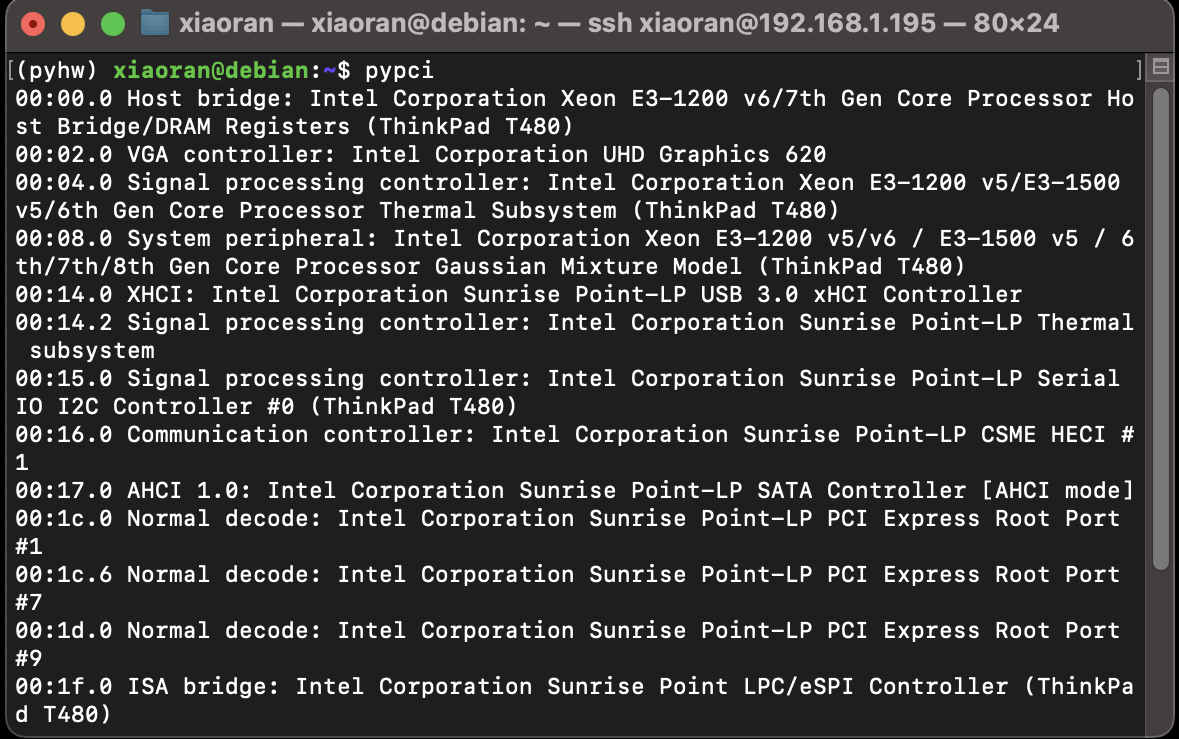pypci, a pciutils-like library for fetching system PCI/PCI-E information but written mostly in python.
Project description
pypci-ng
pypci-ng, a pciutils-like library for fetching system PCI/PCI-E devices but written mostly in python.
Install
There are already a lot of similar tools so you can choose any of them; they're all essentially no different. If you want to try this tool, just install it directly by pip.
pip install pypci-ng
To upgrade pypci:
pip install pypci-ng --upgrade
You can then use this tool directly from the command line with the following command, just like neofetch.
pypci
Please note that the command line entry for pypci is created by pip, and depending on the user, this entry may not in the system PATH. If you encounter this problem, pip will give you a prompt, follow the prompts to add entry to the system PATH.
Supported (Tested) OS
- Linux
Build from source
Build tools
Make sure the following Python build tools are already installed.
- setuptools
- build
- twine
Build package
clone the project, and run:
python -m build
After the build process, the source package and the binary whl package can be found in the dist folder.
Project details
Release history Release notifications | RSS feed
Download files
Download the file for your platform. If you're not sure which to choose, learn more about installing packages.
Source Distribution
Built Distribution
Hashes for pypci_ng-0.0.1b0-py3-none-any.whl
| Algorithm | Hash digest | |
|---|---|---|
| SHA256 | a48aaa34ce5bc93ec05671be10550f685a87ddf8d1200ceea2f88b3e7dd42c5b |
|
| MD5 | 7f476f2f98cc67328156d3b35aa0b27c |
|
| BLAKE2b-256 | cdfe0e7db0a13a68a80539d892e862f6582b5e0d28c2c85fb2910fc9074fd4ab |













